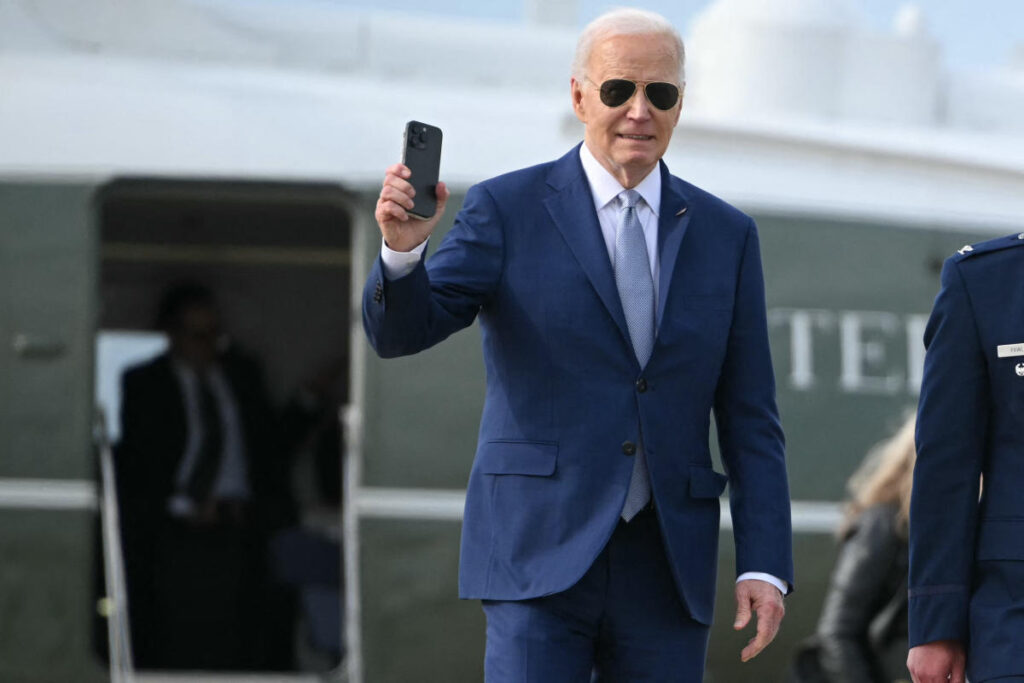The White House's sweeping move to raise tariffs on China as early as this week is due to “lessons learned” about the country's actions, according to a former official who led the government's review of what tariffs should be imposed. “It reflects that.”
The White House announcement, scheduled for Tuesday, is the culmination of a two-year investigation and reflects the economic damage China has already inflicted on the United States, said most recently the general counsel for the U.S. Trade Representative's office. Greta Peisch, who worked there, said:
He cited unfair trade practices in areas such as solar panels and electric vehicles.
“We have seen the impact of China's industrial policy and overcapacity in many sectors,” he added.
The Biden administration's review begins in 2022 and focuses on mandates first imposed under the Trump administration. The conclusions revealed this week could affect tariffs on a wide range of industries, from electric vehicles to batteries, solar power and critical minerals.
Bloomberg first reported the administration's plans to release the results of this long-awaited review.
The Wall Street Journal reports that the announcement will also quadruple tariffs on EVs from China. The measure could raise tariffs from the current 25% level to nearly 100%.
China's Ministry of Foreign Affairs responded to the report at a press conference on Friday, saying, “The United States continues to politicize trade issues, abuse the so-called review process of Section 301 of tariffs, and plan to raise tariffs.”
“China will take all necessary measures to protect its rights and interests,” the spokesperson added.
“We've seen the damage here in the United States.”
The announcement, which could be made next week, comes on the heels of another move by Mr. Biden that angered China: a call last month to triple tariffs on Chinese steel and aluminum.
In announcing the plan, Biden said China was “not competing, it's cheating” and that “we've seen the damage here in the United States.”
Future actions by the White House are expected to have broader implications and come after years of debate within the Biden administration over the direction in which China's import tariffs should be taken. .
In testimony before Congress last month, U.S. Trade Representative Katherine Tai said the review would address China's unfair practices and “take a serious look at how our existing tools address this issue.” This is an effort to “consider the matter.”
He added at the time that China's misconduct spanned a wide range of industries, including “steel, aluminum, solar panels, batteries, electric vehicles, and critical minerals, to name a few.”
Perhaps the industry where cheap Chinese products are already having the most noticeable impact is solar panel manufacturing. A coalition of U.S. solar power manufacturers filed a petition with the Biden administration last month saying they are being “harmed” by cheap imports from Asia.
Figures like Treasury Secretary Janet Yellen and Commerce Secretary Gina Raimondo also want to strike the right balance between new tariffs on strategically competitive areas of the economy and the possibility of lower tariffs on some consumer goods. Participating in government discussions regarding
It is unclear whether the new national security tariffs, expected to be announced next week, will be combined with other tariff reductions. Details of Biden's plan are still sketchy.
Peish, who helped lead the review under Thailand's ambassadorship, said there was a middle ground between new tariffs and consumer prices.
“It’s a balance, but I think the emphasis has been on making sure we have important sectors that are good domestic employers,” she said.
He also noted that there has been ample discussion about the link between inflation and tariffs, and whether a reduction in the current U.S. tariffs would have a significant impact on prices.
“The general answer was no. Eliminating tariffs wouldn't stop inflation,” said Mr. Peisch, now a partner at the Washington, D.C., law firm Wiley Lane.
A Tax Foundation study of President Trump's various tariffs (most of which Mr. Biden has continued) found that in the long run they would reduce GDP by 0.21% and cost the economy the equivalent of 166,000 jobs. It turns out that it does.
politics of tariffs
Biden will face off this fall against former President Donald Trump, who is proposing historically high new tariffs. This includes tariffs of up to 60% on many Chinese products, and tariffs at his 10% level on other major trading partners.
President Trump also floated the idea of imposing 100% tariffs on all cars from Mexico in a recent interview with Time, but left open the possibility of doing so only in retaliation.
This week's announcements will further sharpen the contrast between the two presidential candidates. Both aim to elevate the profession, but their approaches are competing.
Bill Reinsch, a longtime trade policy expert, summed up the differences in a recent interview by saying that Biden's trade approach is between sticks and carrots.
While providing certain credits and incentives, Biden said, “There are some things that we need to produce in this country for security reasons: chips, batteries, critical minerals, personal protective equipment, pharmaceuticals.'' It is also stated that.
Trump, on the other hand, has “no carrots, only sticks.”
Trump's allies say the president will allow organic manufacturing growth in the U.S., an approach that Biden allies and some trade experts say is too blunt. often criticized. At such high levels, some worry that inflation will accelerate.
Biden's approach is more strategic, allies argue, and aimed at protecting only those areas of the economy with the greatest national security needs.
“This is part of a pattern where specific concerns are targeted,” Paisch said, noting that other recent government actions have been “quite coordinated and targeted.”
Ben Werschkul is Yahoo Finance's Washington correspondent.
Click here for business and money-related political news
Read the latest financial and business news from Yahoo Finance


